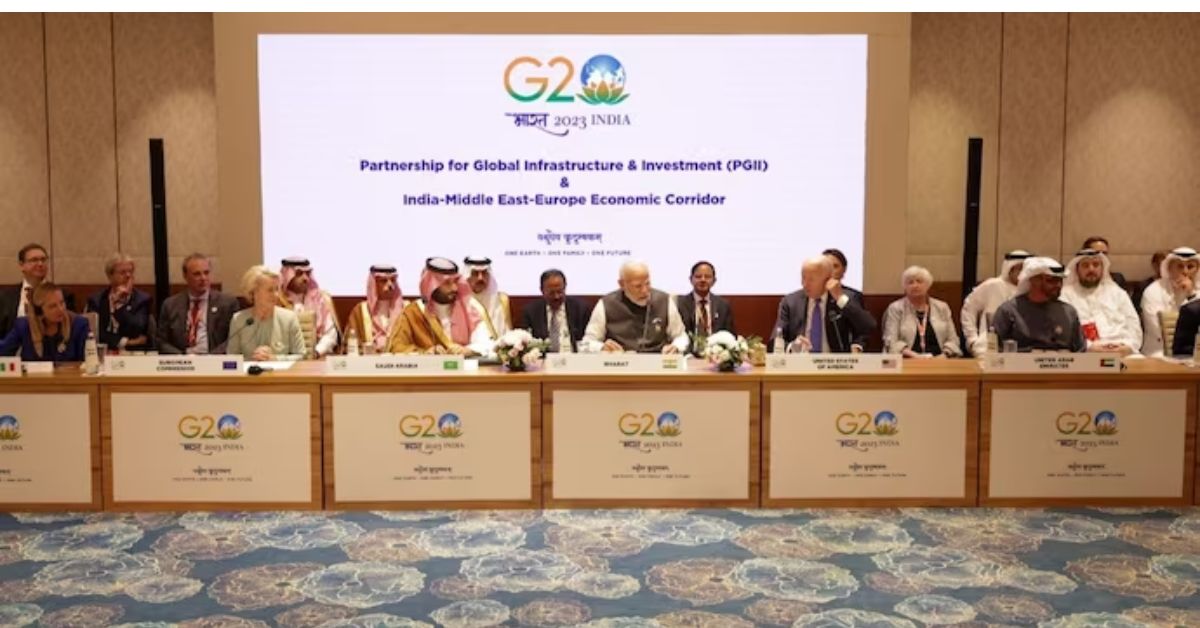The India-Middle East-Europe Economic Corridor (IMEC) will connect three regions but much of the action and investment is set to unfold in the Middle East. The United Arab Emirates (UAE), Jordan, Saudi Arabia and Israel will be the countries that will have to invest in railway lines and other logistics facilities to divert traffic between Europe and India from the Suez Canal.
According to the MoU that the United States, the UAE, the European Union, India, Italy, France, Germany and Saudi Arabia signed during the G20 summit in Delhi, ships will transport goods between the west coast of India and a transshipment port in the UAE, from where they will travel by rail through Saudi Arabia and Jordan to Israel. The distance between the Israeli port of Haifa and the Greek port of Piraeus will be covered by ship, according to commentary in Israeli newspapers.
A Jewish researcher of Indian origin in Jerusalem said it would cut transit time between Mumbai and Europe by 40 per cent. Hyped up gains are usually claimed when such grand projects are initiated. The Middle East railway leg will have to be quite competitive to make transshipment worthwhile.
The shipping lines between India and Europe are well-established. As if it was anticipated, the Adani Group (and Israel’s Gadot Group) are now the new owners of Haifa port, after winning a privatisation bid in March. The investment in railways will have to be done by the participant countries in the Middle East. They are positioned to do so.








